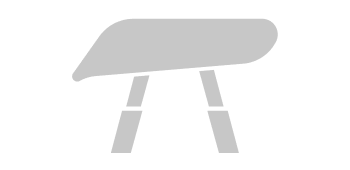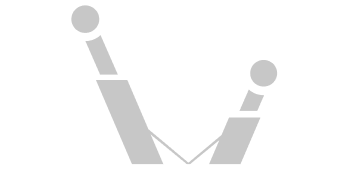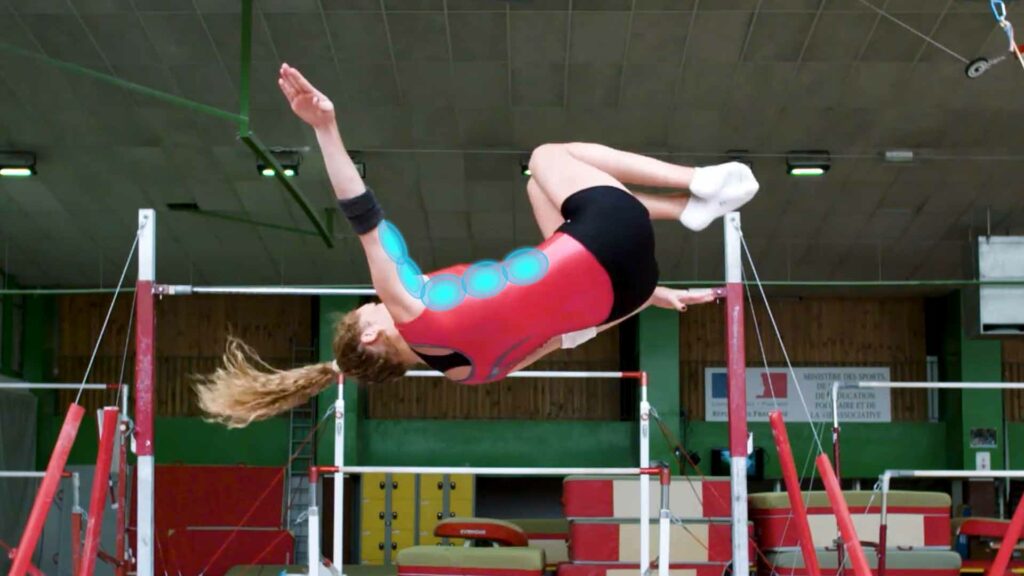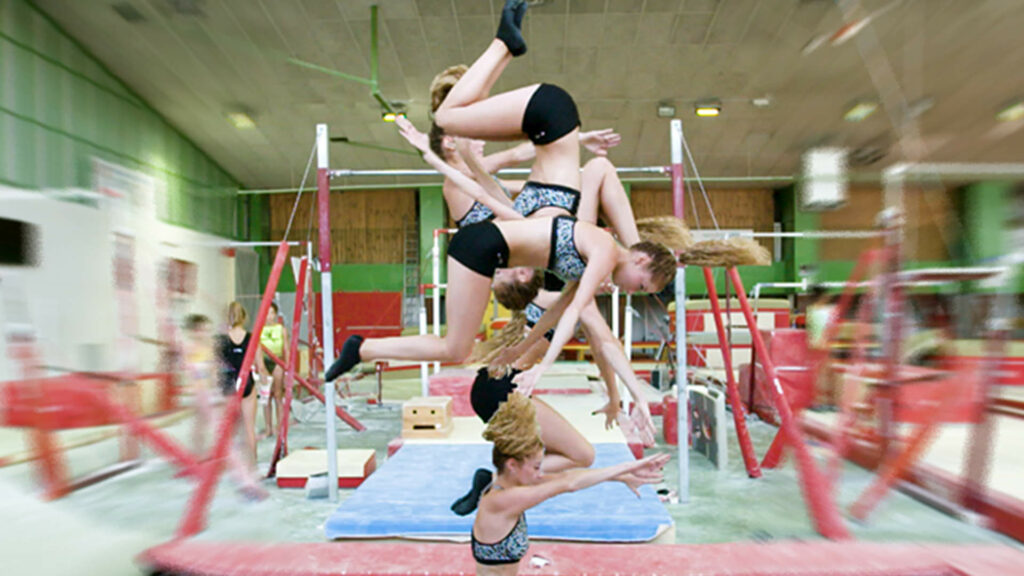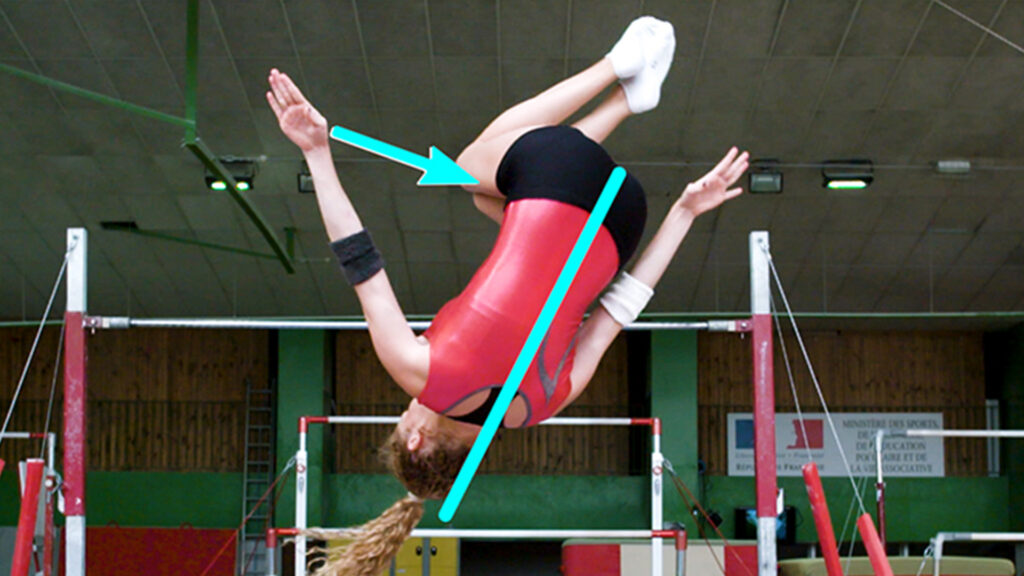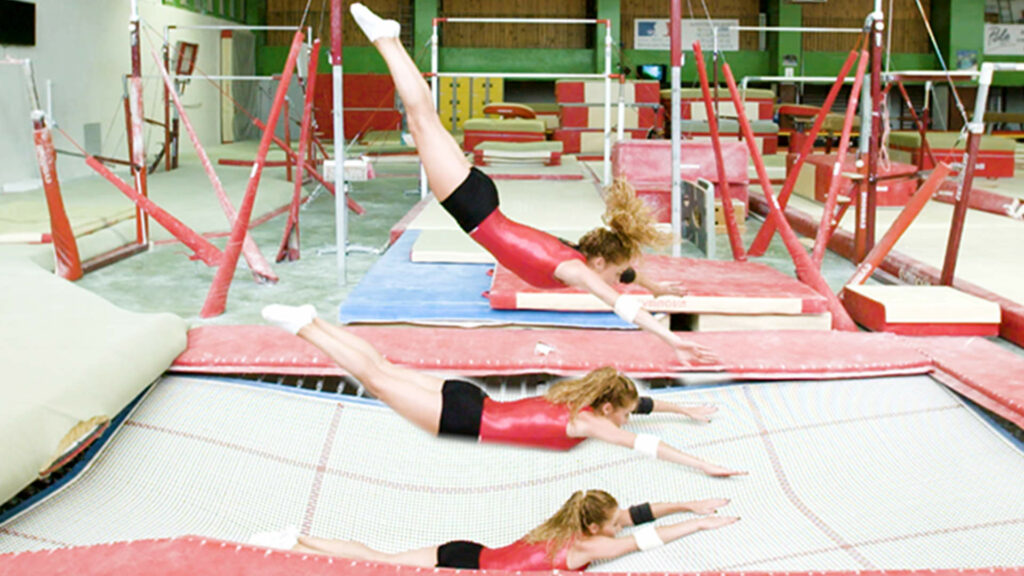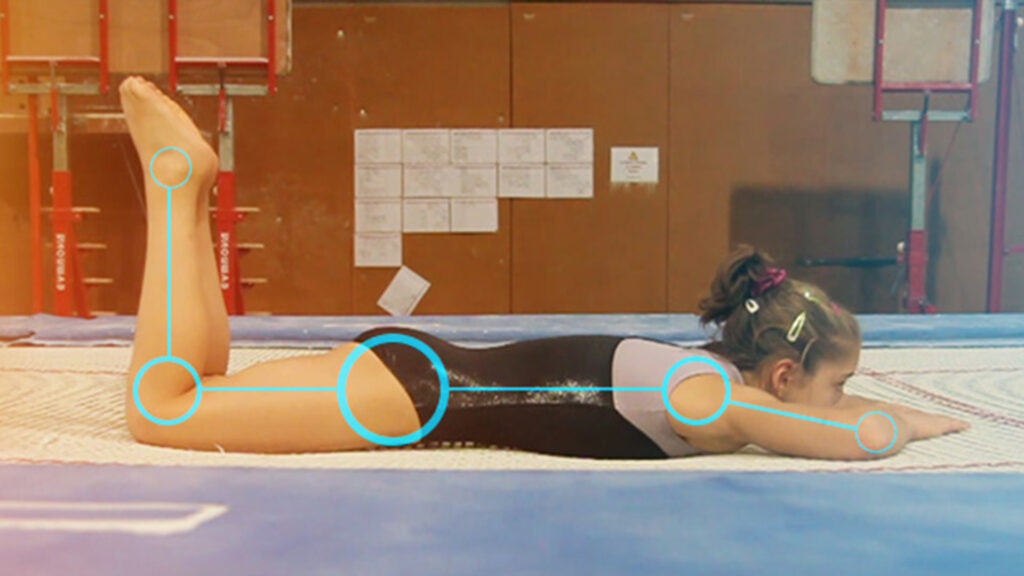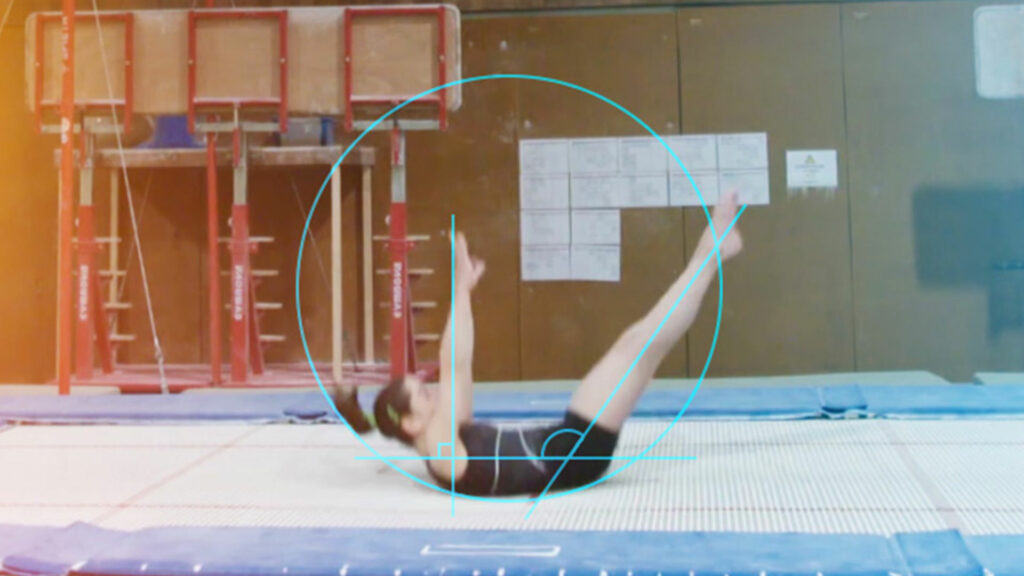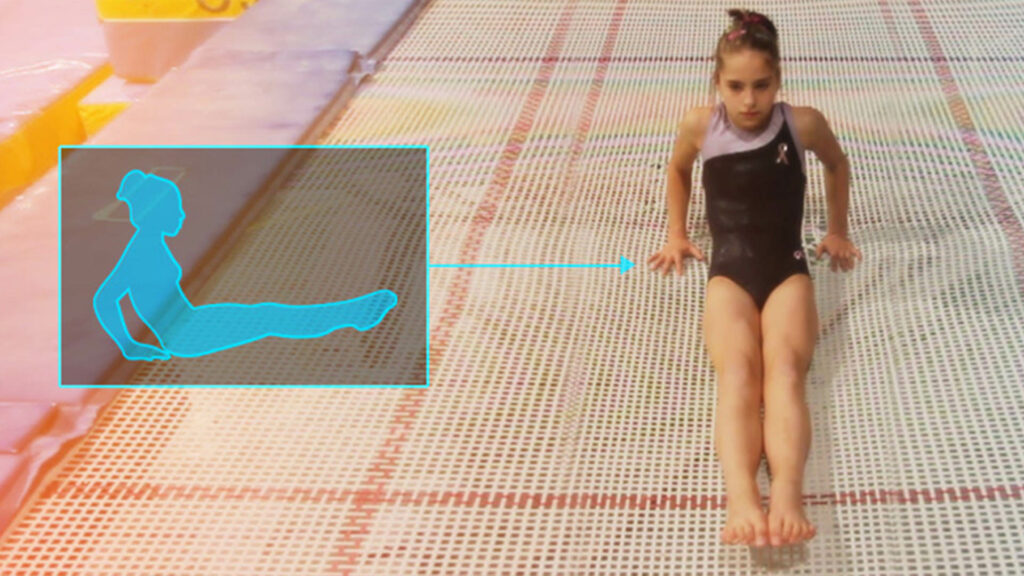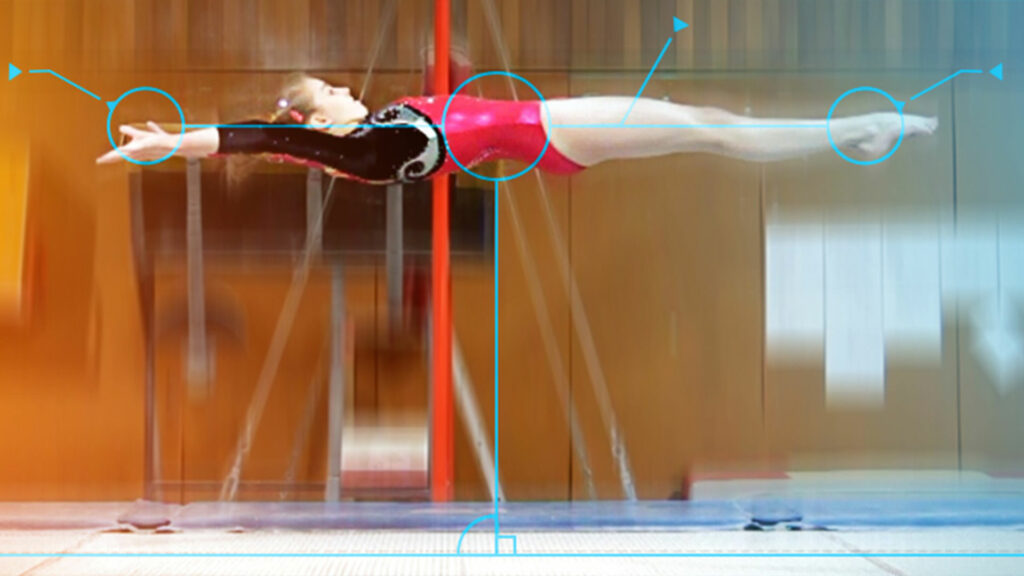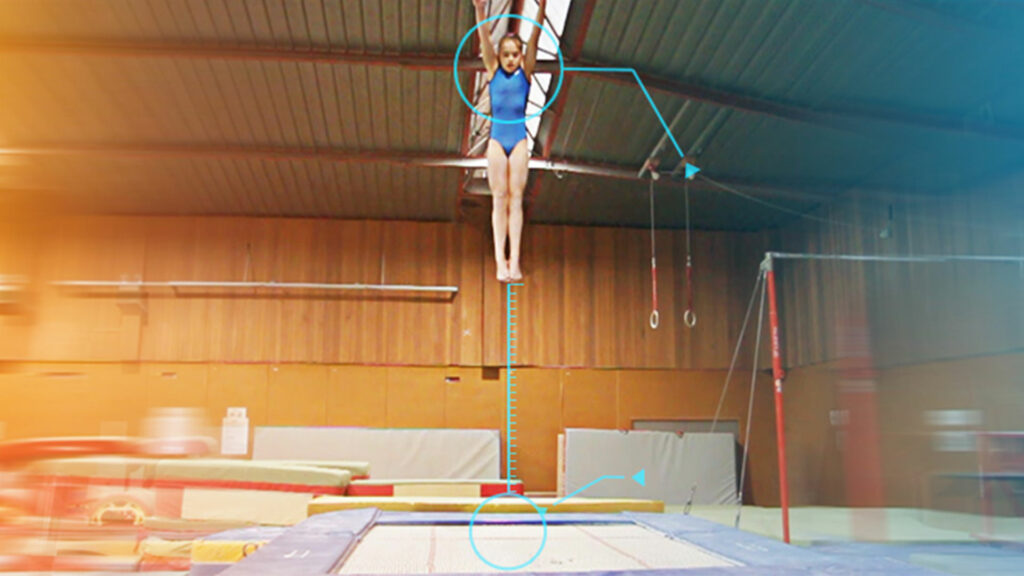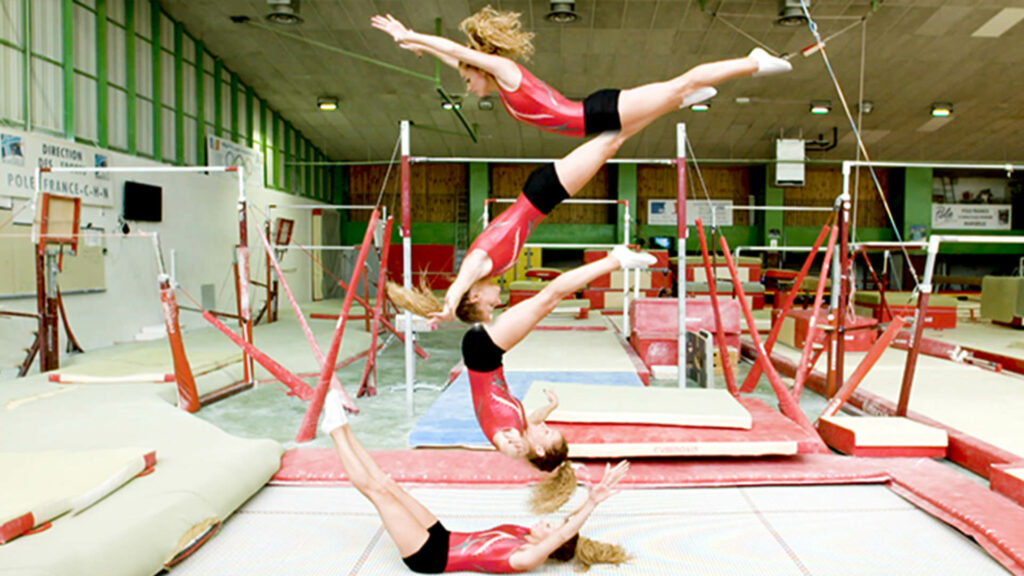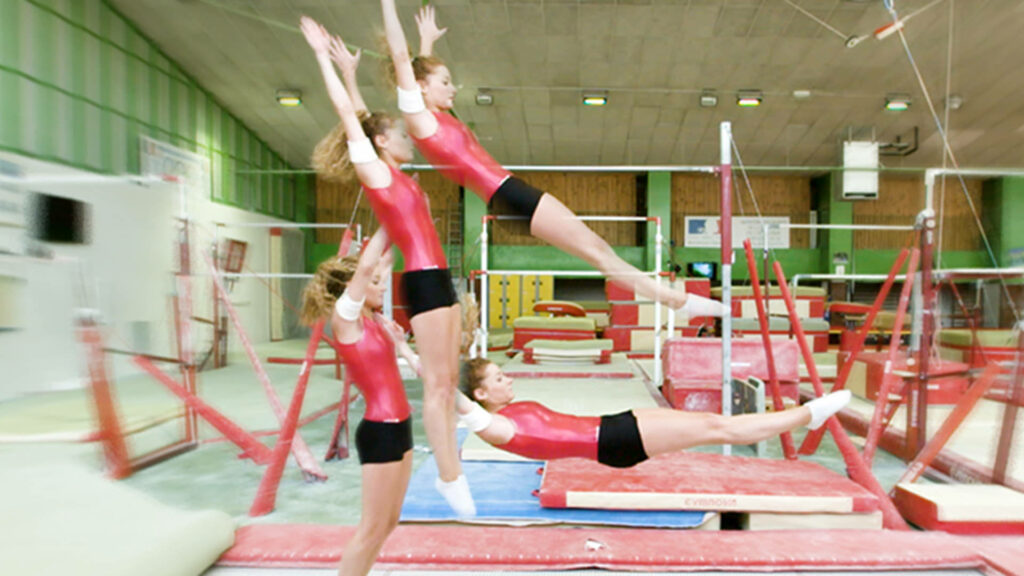Topics
All levels
All
Back kaboom
Backward skills off the trampoline
Ball out
Cody
Forward skills off the trampoline
Front kaboom
Longitudinal rotations
Straight jumps and variants
Work with a bar
There are no options in the selected section and level.
GymneoTV training videos: Learn and teach gymnastics on trampoline
Should we consider trampoline to be the fifth apparatus in women’s artistic gymnastics? It’s up to each coach to decide the answer to this question. For some, no, because it would decrease the time available to work on other apparatus. And for others, a resounding yes! Because although there’s a time investment to begin with, the benefits for the other apparatus are exponential. On the timescale of a gymnast’s entire career, there’s no doubt whatsoever. The regular use of the trampoline as a “tool” helps gymnasts to make faster progress!
So why doesn’t everyone use it? First of all, because you need a “real” trampoline, like those used in competition. The ideal is a trampoline set in the ground with an exit into a pit. The ultimate would be to have one in a pit, and another on the floor. But it’s also, and more importantly, because in order to teach on trampoline, you need to master even more areas of competence. And very often, a lot of coaches don’t know how to teach a Cody, a ball out, a kaboom, and all the other skills unique to trampoline, but so useful for gymnastics.
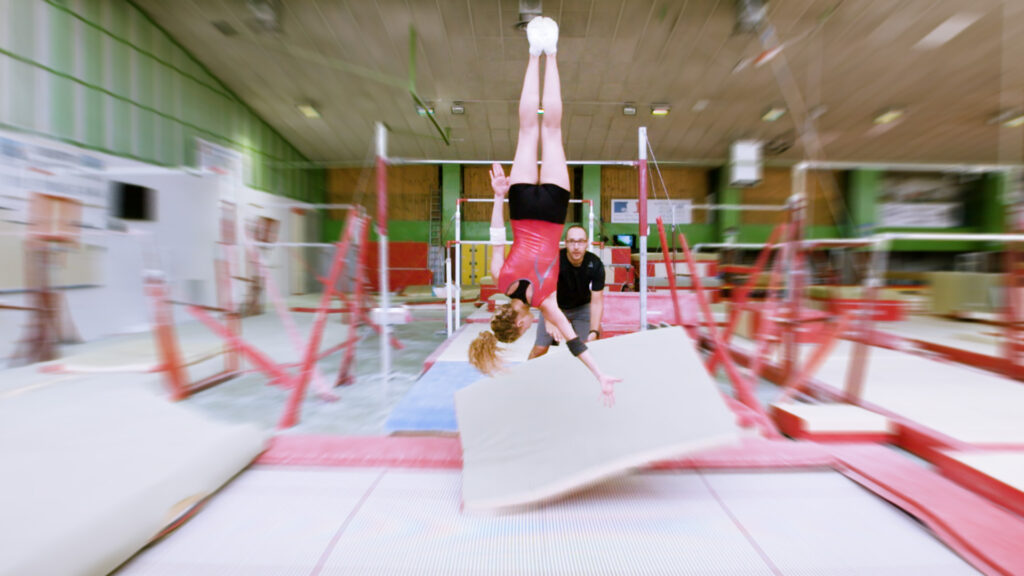
GymneoTV training materials aim to offer both beginner coaches and those already familiar with the use of the trampoline for gymnastics all the necessary knowledge for these fundamental skills. They help you to understand the close link between these elements and acrobatic skills in gymnastics. Through them, you’ll learn the technique for these specific skills, and how to teach them to your gymnasts.
You’ll see how much kabooms help with learning twists and dismounts from bars. To what extent Codys save you time when teaching Tsukaharas, Yurchenkos and double rotations on floor, especially when it comes time to add twists. Ball outs have similar benefits for forward acrobatic movements and for handsprings on vault.
And for your gymnasts to be able to transfer the sensations and reference points that they figure out in acrobatic skills off the tramp, you’ll learn the placements needed in preparatory skills.
For us, as you can see, trampoline really is a fifth apparatus. In fact, it’s really part of all the other apparatus. Our experience has shown over and over again its synergistic effect for gymnastics. It’s for this reason that we make such an effort to share all of our knowledge with you on this fantastic tool. Take the time to acquire this knowledge. You’ll be well rewarded.
To learn more about the content of our training on trampoline, take a look below at the chapter topics that we deal with for each element.
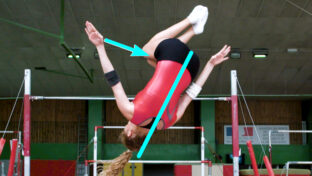
Technical analysis
The technical analysis is THE starting point for each of our gymnastics tutorials.
Objective: to explore artistic gymnastics elements in exceptional detail.
What are the correct placements, what's the rhythm needed, at what moment do you need to initiate the action to succeed? We'll explain everything. And to aid comprehension, we film the skill from different angles, we incorporate animation and graphics, slow motion images and other effects that help illustrate our explanations. We also tackle some concepts from biomechanics from time to time, but don't worry - always in an easy-to-understand manner! These help us to understand why it's better to perform one action rather than another.
Having an excellent level of knowledge of technical elements is essential for a gymnastics coach: you can correct things more quickly, you give relevant instructions, and your gymnasts make faster progress.
Thanks to the technical analysis, you won't lose time in training: you can go straight to the essentials!
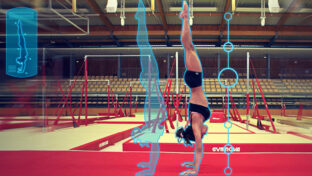
Analysis of the prerequisites for technical elements
The analysis of prerequisites for a technical element is an essential step. Unfortunately, it's often forgotten. Yet it allows us to answer this question:
"How do I know if my gymnasts are ready to tackle this new element?"
In our "prerequisite" videos, we teach you to list the elements that your gymnasts need to be able to do before moving on to a more complex skill. But be careful - this list in itself is not enough! For each prerequisite, you need to identify the placements, rhythm and actions that demonstrate that your gymnast is ready. That she really has the capacity to move on to a new element. It's these indicators that we'll teach you to analyze!
These criteria can be technical, physical, or mental. The observation of small details is sometimes subtle, but it'll give you vital information on the potential and the acquisitions of your gymnasts. Once again, the precision of your analysis and your observation will help you to make the right decisions at the right time. An excellent way to build your gymnasts' confidence.
So for the prerequisites, get yourself into "researcher" mode and press the "observation" button!
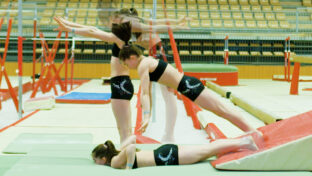
The skill progression - a progression of exercises to learn each element
Move into action mode with these teaching videos!
Our skill progressions have been designed to offer a series of drills that suit the level of your gymnasts. The progressions begin with exercises for beginners, and develop all the way to competition-ready performance of the skill.
But we're not talking about a simple list of exercises. Our trainers explain the purpose of each work station. They'll teach you to notice the positioning and actions to look for as well as the instructions to provide.
The videos of these drills are filmed from different angles and include slow-motion sections. So you'll be able to analyze the exercises in detail.
Teaching is at the heart of our profession as coaches. Progress is often a source of both enjoyment and motivation for your gymnasts. By offering drills suited to their level, you'll help them to reach their goals.
For motivating training sessions, you need to choose training circuits that are relevant!
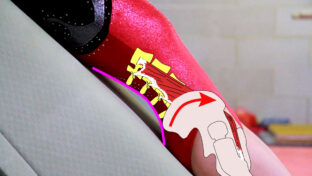
Specific physical preparation
Learning certain elements also requires work on specific physical preparation. Why?
We know that the main goal of specific physical preparation exercises is muscle strength. But some of them also help gymnasts to better sense the muscle work that is asked of them in the performance of a skill.
Watch these videos attentively and you can increase your gymnasts' capacity to perform very targeted movements. Some of these specific exercises will help them to sense the muscle that's working. This will then help them to recognize and reproduce this same contraction or this same sensation while performing the element.
Specific physical preparation: your added advantage for masterful execution of acrobatic skills
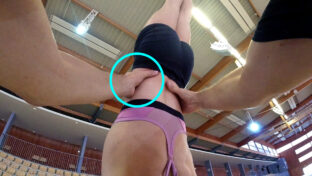
Assistance and spotting
Take your place next to your gymnasts: it's thanks to you that they'll go further!
Assistance techniques are there to help bring that extra input of energy that your gymnast might need. When you're standing by, you stay close to the gymnast and you intervene if there's a risk of danger or falling. When supporting, you are fully involved: with precise positioning, the coach gives the gymnast an experience of the entire movement, in order to help her create a representation of the work needed.
Through our training videos, you'll learn all of these different techniques. You'll find everything you need: where to stand, how to place your hands and at what moment you need to intervene. And to make it easier to visualize movements, we alternate with slow motion sequences and views from a body-worn camera so that you can see clearly where to place your hands. Images at normal speed allow you to see the whole spotting sequence in real time. After that, to master different spotting situations and feel confident, it's all a question of training and repetition.
So, get out of your comfort zone - you're up!
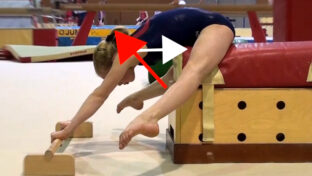
"Live" video sequence
In some training guides, our trainer brings you a segment entitled "live".
The aim: to take a look at movements that are performed with common errors.
The observation of these video clips is an active process: it's up to you to examine the gymnast's performance. Can you detect the errors? And if it were up to you, how would you analyze them, and what feedback would you give?
Take a little time to do this work, and then watch the rest of the video: the mistakes are explained and analyzed, and you're given an approach for correcting these mistakes.
These videos give you the freedom to really practice your observation skills!
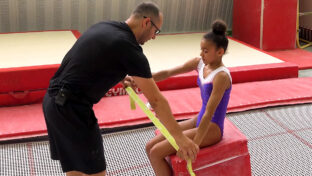
GymneoLive training sessions
With GymneoLive sessions, open the doors to the gym and come in... you have front-row seats!
Watch a training session as it really happens, and see how the coach organizes the session. You see the teaching techniques used, the stations set up, the modifications and adaptations created when the exercises aren't suited to the gymnasts.
You'll hear the gymnasts' reactions and the instructions they're given, as though you were there in person. Situations you'll find enriching, that apply the advice and techniques presented in all of our training materials on gymnastics elements.
Variations: Some GymneoLive sessions are filmed with two coaches present. Even more to learn from the questions and exchanges on technique between coaches, and the answers given directly to the gymnasts.
GymneoLive sessions are online - are you ready? ... set? Then go! Venture into training territory with us!
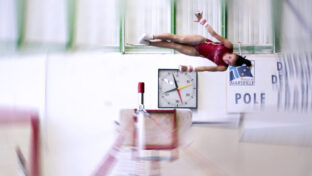
Slow motion videos - learning through observation
The "slow motion" training section brings together a number of technical elements filmed at normal speed and in slow motion, up to 1000 images per second. The aim is to allow you to examine a skill in detail.
Watch the movement at regular speed in order to absorb the rhythm of the element. Next, use the various slow motion video images to examine the placements and directions of any aspect of technique. To go even further, select the video in "super slow motion", up to 1000 images per second!
Attentive observation of a gymnastics move allows you to learn differently and to discover all the subtleties of the skill.
With slow motion, you can create a clear and realistic image of the task at hand.
Our advice: show these videos to your gymnasts. You'll help them to form an image of what you expect from them in training and in competition.

